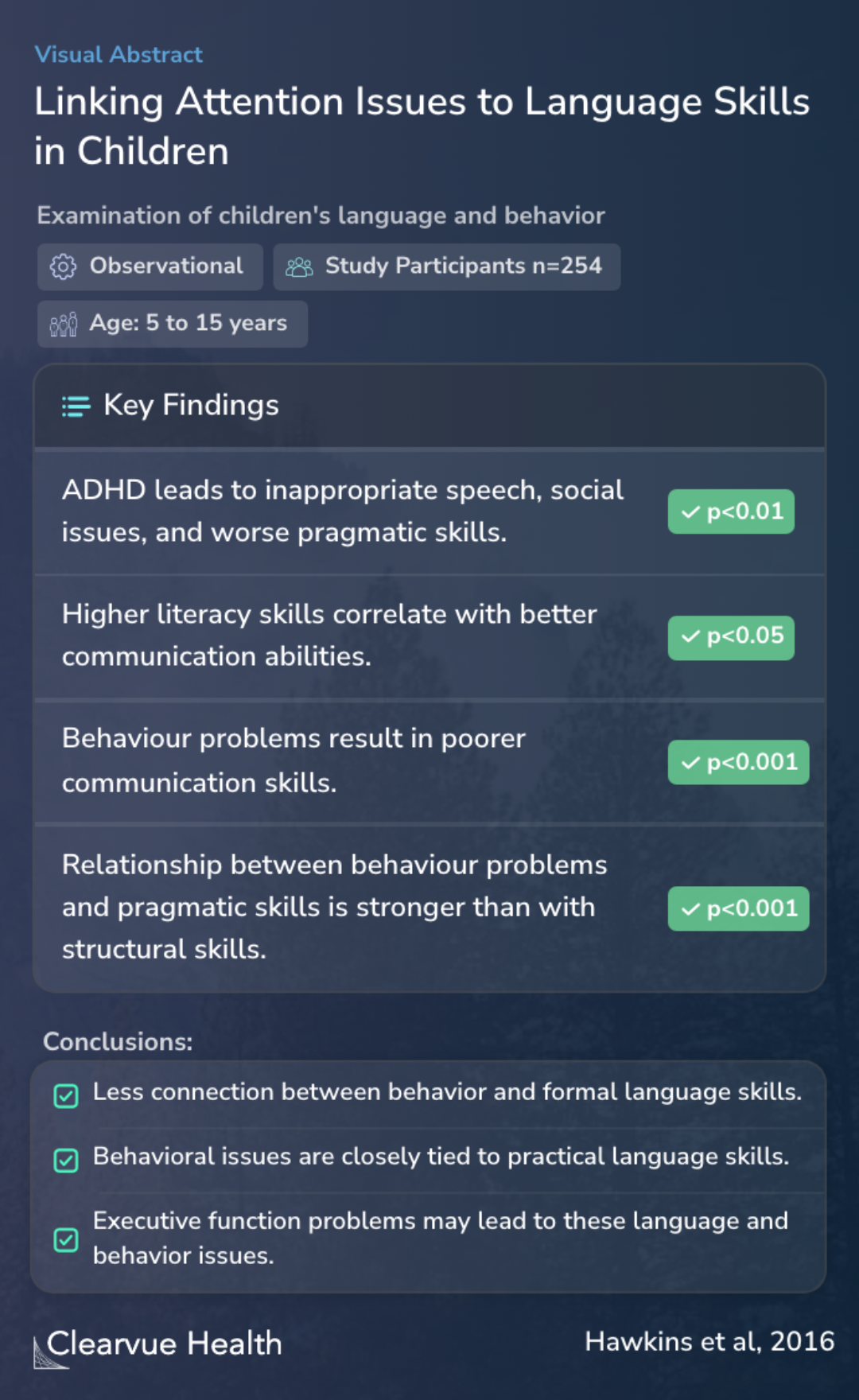Language Problems and ADHD Symptoms: How Specific Are the Links?
Linking Attention Issues to Language Skills in Children
Hawkins E, Gathercole S, Astle D, The Calm Team, Holmes J

Objectives
The paper aims to investigate how symptoms like lack of focus and being overly active are often seen together with language problems in kids, both in clinics and in everyday settings. It looks into how common and strong these connections are in a diverse group of 254 children, aged between 5 and 15 years. These kids were pointed out by school and health experts because they had issues with paying attention, learning, or remembering things.
Symptoms of inattention and hyperactivity frequently co-occur with language difficulties in both clinical and community samples. We explore the specificity and strength of these associations in a heterogeneous sample of 254 children aged 5 to 15 years identified by education and health p...
Methods
The study involved watching and examining how children use language and behave. It included 254 kids whose ages ranged from 5 to 15 years. Parents and caregivers gave their opinions on how well the kids communicate and behave. Additionally, the kids were tested on their reading, spelling, vocabulary, and understanding of sounds in words.
Parents/carers rated pragmatic and structural communication skills and behaviour, and children completed standardised assessments of reading, spelling, vocabulary, and phonological awareness.
Results
The findings from the study showed a clear link between how well children can read and write and how they communicate. Better skills in reading and writing were strongly connected to better communication.
However, when it came to behavior, more problems meant worse communication skills, both in how they structure their sentences and how they use language in social situations. The relationship between behavior problems and practical use of language was stronger than that with structured language use.
A single dimension of behavioural difficulties including both hyperactivity and inattention captured behaviour problems. This was strongly and negatively associated with pragmatic communication skills. There was less evidence for a relationship between behaviour and language structure: b...
Conclusions
The study concludes that behavior issues and practical communication problems often happen together in this group of kids. However, the way these kids use language in a more formal way, which affects their reading and writing skills, is not as strongly connected to behavior issues. One way to understand this is that problems in executive function, which is like the command center of the brain, might lead to both behavior and social communication issues. At the same time, other difficulties in thinking abilities might affect the development of structured language skills.
These behaviour problems and pragmatic communication difficulties co-occur in this sample, but impairments in the more formal use of language that impact on literacy and structural communication skills are tied less strongly to behavioural difficulties. One interpretation is that impairm...
Key Takeaways
Context
The paper also connects with other research showing that different types of ADHD affect social skills in unique ways. For instance, ADHD that mainly involves inattention makes it hard for a child to be assertive, whereas ADHD that involves both inattention and hyperactivity can lead to impulse control problems in social situations. Furthermore, hyperactivity linked to ADHD is associated with social immaturity, which can make it difficult for kids to interact properly with their peers and build meaningful relationships. When disorders like Oppositional Defiant Disorder (ODD) or Conduct Disorder (CD) occur alongside ADHD, they can make social communication and behavior even more challenging.
Other studies have similarly demonstrated the important role that language plays in social life in ADHD: